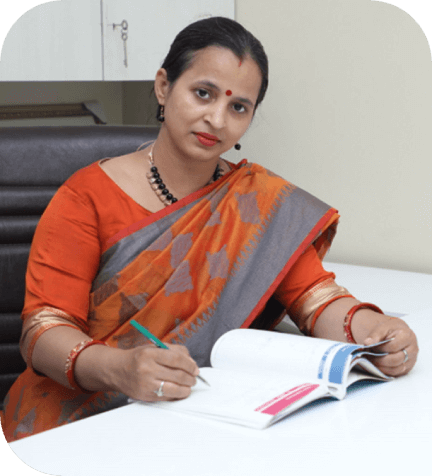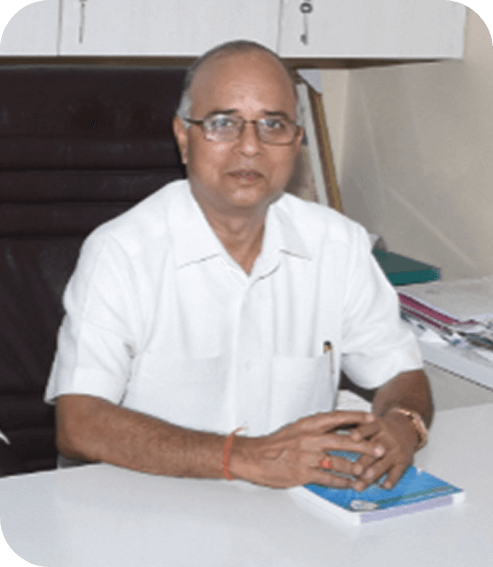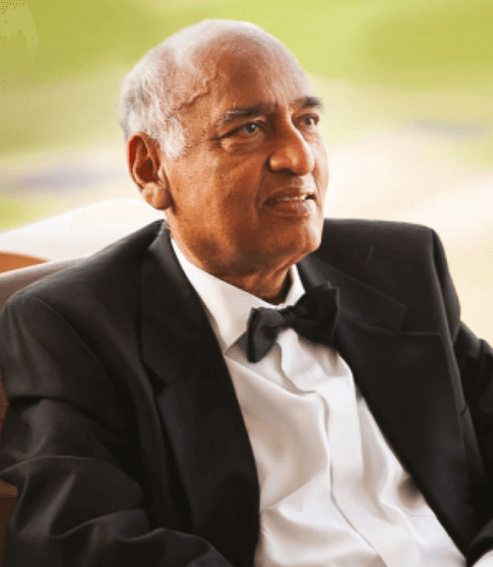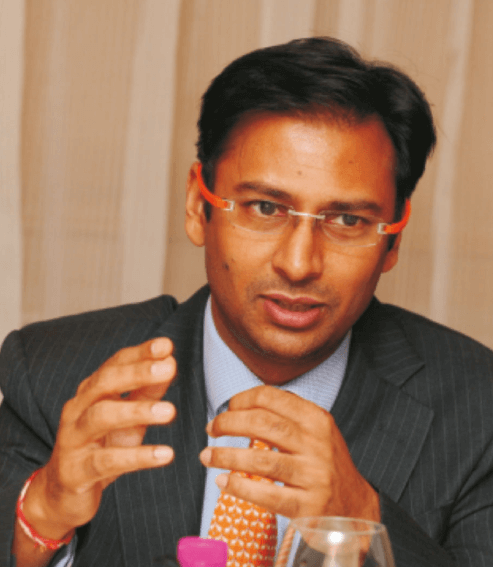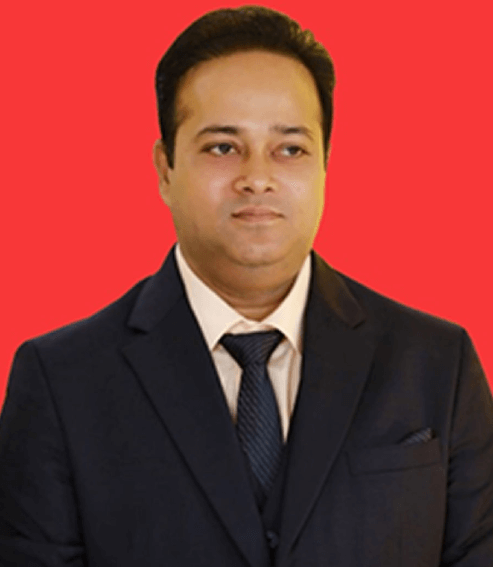ABOUT US
WELCOME TO
PODDAR BRIO INTERNATIONAL
SCHOOL ( CBSE )


OUR VISION, MISSION & PHILOSOPHY


Vision
PODDAR BRIO International School aims to be an institution of excellence dedicated to producing principled, balanced and open-minded thinkers of tomorrow.


Mission
To fulfill the vision, PODDAR BRIO International School provides an environment to tap and nurture the latent potential of every student through a focused pursuit of knowledge, skills, and values which blend with his persona, giving him an identity as an individual, social being and a citizen of the nation and world at large.


Philosophy
PODDAR BRIO International School believes in providing children with an environment that integrates individual and group learning with playing, knowledge, reasoning, creativity, discipline & freedom all into a seamless mix of experiences, discoveries, and structured inputs. Poddar Brio International School is designed to be a true center of learning, a place where students enjoy the thrill of learning new things every day. Here learning is not an imposition, interference, or theft of freedom but excitement, and the key to greater freedom than they have ever known. Inspired by Rabindranath Tagore’s vision for an educated community, Poddar Brio International School imbibes the spirit of creativity and co-curricular excellence that complements academic learning beautifully.
“Knowledge must continually be renewed by ceaseless effort if it is not to be lost. It resembles a statue of marble that stands in the desert and is continually threatened with burial by the shifting sand. The hands of service must ever be at work, in order that the marble continues to lastingly shine in the sun. To these serving hands mine shall also belong.”
We believe that each child is a unique individual who needs a secure, caring, and stimulating atmosphere in which to grow and mature emotionally, intellectually, physically, and socially. It is our desire as an educator to help students meet their fullest potential in these areas by providing an environment that is safe, supports risk-taking, and invites a sharing of ideas. There are three elements that we believe are conducive to establishing such an environment:
- The teacher acting as a guide
- Allowing the child’s natural curiosity to direct his/her learning
- Promoting respect for all things and all people.
OUR AIMS
- Provide student’s access to hands-on activities and allowing adequate time and space to use materials that reinforce the lesson being studied creates an opportunity for individual discovery and construction of knowledge to occur.
- Developing a curriculum around student interests fosters intrinsic motivation and stimulates the passion to learn. One way to take learning in a direction relevant to student interest is to invite student dialogue about the lessons and units of study.
- Provide our students with the ownership in the curriculum, so that they are motivated to work hard and master the skills necessary to reach their goals.
- Helping students to develop a deep love and respect for themselves, others, and their environment occurs through an open sharing of ideas and a judicious approach to discipline.
- Setting fair and consistent rules initially and stating the importance of every activity, students are shown respect for their presence and time. In turn, they learn to respect themselves, others, and their environment.
- Impart a solid education, and to work with them to be sensitive to their individual needs.
SCHOOL CURRICULUM & GOALS
To create a connect between learners' spiritual, ethical, social, cognitive, mental and physical growth and development; To nurture individuality and thus enhance one's innate potentials; To foster constitutional literacy and tolerance for different cultures; To develop scientific outlook and transformative competencies, in order to meet the demands of changing society. The aim of education is not just to let learners obtain basic knowledge but to make them life-long learners. It is to nurture future citizens who are mentally and physically robust, assertive, confident, empathetic and helpful to the community, intellectually inquisitive and reflective, tolerant and with creative vision and global perspective. Schools will accomplish such standards through the promotion of values-based learning activities which emphasize humanity, practicality, individuality, inclusiveness, and modernity. Such activities involve collaborations between oneself and others, individuals and the community, as well as humans and nature. To achieve this, we must guide our learners to achieve the following curriculum goals: To enhance self-awareness and explore innate potential; To develop creativity and the ability to appreciate art and showcase one's own talents; To promote capabilities related to goal setting, decision making and lifelong learning; To nurture assertive communication and interpersonal skills; To learn to be empathetic towards others, display dignity and respect to the opposite gender, to contribute for the community, and focus on preserving environment; To foster cultural learning and international understanding in an interdependent society; To strengthen knowledge and attitude related to livelihood skills; To acquire the ability to utilize technology and information for the betterment of humankind; To inspire the attitude of functional and participatory learning; and To develop abilities related to thinking skills and problem solving.
Core competence and outcomes in order to achieve the above-mentioned goals, the curriculum shall focus on the requirements and capabilities of learners and aim at developing core competencies which a global 21st century citizen should possess. Such core competencies may be categorized as follows: Self-awareness and exploration of innate potential, which involves thorough understanding of one's personality, competencies, emotions, requirements, and dispositions, respect and love for self, regular self-reflection, self-discipline, optimistic attitude, and ethics, showcasing one's individuality, and instituting values. Appreciation, representation, and vision, which include the ability to perceive and appreciate the beauty of things as well as using imagination and creativity, developing a dynamic and innovative attitude, and expressing one in order to promote the quality of living. Goal setting, decision making and lifelong learning, which involves the development of individual abilities in order to bring forth one's talents, chart the path for future success, and develop the capability of lifelong learning in accordance with the transition of the current century. Effective communication skills, which involves making effective use of all kinds of symbols (such as languages in both verbal and non-verbal forms, sounds, motions, visual and written) and tools (such as media and technology) in order to better interpersonal relationships through skills of listening attentively to and communicating effectively with others, and sharing various perspectives and information assertively with others.
Empathy, which involves being aware of other people's feelings and situations, respect for the opposite gender, tolerant of different opinions, and unbiased to humans and groups of different identities, with respect for life and thoughtful for the community, the environment, and nature, obeying and respecting the rules of the law, and holding an attitude which is conducive to collaborative work and leads to individual, societal as well as global transformation. Cultural learning and international understanding, which involves appreciating and respecting different groups and cultures, taking pride in the history and culture of one's own country, as well as holding a positive outlook towards different cultures, developing a global perspective with conjoint interdependence, trust and cooperation. Knowledge and attitude related to livelihood skills, adopting approaches by which such considerations and practices are incorporated, equipping and enabling each member to contribute to the community, as well as serve the public and one's country in a productive way. Utilization of technology and information, which involves the utilization of technology in a positive, safe and effective way for the welfare of mankind, for boosting learning efficacy and living quality. Functional and participatory learning, leading to the development of higher order thinking skills. Encouraging inquisitiveness and keen observation, actively exploring and discovering solutions, and applying knowledge, attitude and skills in daily life. Thinking skills and problem solving, which involves cultivating the ability and habit of thinking creatively and reflectively, making logical analyses and decisions, and effectively solving problems and resolving conflicts.
In classes I to V, the focus is on encouraging inquiry, exploration and on inculcating confidence in key learning skills- reading, writing, listening, speaking, information technology capability, problem-solving, observation and measurement. Children are encouraged to speak and perform at assemblies, concerts, drama productions, and thus gain confidence in their ability to communicate to a wider audience. Therefore, our curriculum in these classes is structured to encourage and motivate them to become self-confident, self-reliant and self-disciplined, and thus help them achieve to their full potential. The school seeks to achieve this through a variety of curricular and co-curricular programmes.
Children learn and develop through: A number of informal methods like activities, projects, presentations and hands-on experiences, apart from formal learning; Activities like free play, dramatization, enacting through puppets, singing, dancing, cooking, art, and so on; Outdoor and indoor play and games; Sharing ideas with other children and discovering facts for themselves through observation and reference work; Exciting experimental learning opportunities through field trips which are planned for specific educational purposes; An appropriate balance of whole group, small group and individual activities, which cater to individual differences in learning.
An inter-disciplinary appreciation of Language, Mathematics, Social Studies and Science by learning as individual subjects as well as in an integrated way; Exposure to team and individual sports, competitive and non-competitive, which encourages sportsmanship and a school-wide community spirit and a feeling of individual accomplishment; Opportunities in Dance, Fine Arts, Theatre, Western and Indian Music, Speech and Drama and Yoga, which facilitate a well-rounded development. These are part of the regular curriculum, and are also being offered as co-curricular and core activity programmes.
In classes VI - X, students build on the foundations laid in the primary school. New challenges are met as communication, reasoning, problem solving and value judgment become far more complex. Our aim is to provide a broad-based curriculum which facilitates in-depth study of the key elements of English, Hindi, ? Mathematics, Science, History, Geography, Art, Computer Studies, Music, Yoga, Dance, Drama, Physical Education and Personal Social & Health Education (PSHE). A detailed curricular framework is formulated, which is a blend of both the Primary Programme (which continues up to class IV) and the Central Board of Secondary Education Curriculum. This framework would ensure progression and continuity through the school and avoid repetition. CURRICULUM OBJECTIVES (CLASSES VI TO X) MULTIPLE INTELLIGENCE "We are all able to know the world through language, logical-mathematical analysis, spatial representation, musical thinking, and the use of the body to solve problems or to make things, an understanding of other individuals, and an understanding of ourselves. Where individuals differ is in the strength of these intelligence, the so-called profile of intelligence and in the ways in which such intelligence are invoked and combined to carry out different tasks, solve diverse problems, and progress in various domains." Students learn in ways that are identifiably distinctive. The broad spectrum of students and perhaps the society as a whole would be better served if disciplines could be presented in a numbers of ways and learning could be assessed through a variety of means." The learning styles are as follows: CURRICULUM OBJECTIVES (CBSE XI & XII) 1. PRINCIPLES OF THE CBSE CURRICULUM The curriculum refers to the lessons and academic content to be taught to a learner in the school. In empirical terms, it may be regarded as the sum total of a planned set of educational experiences provided to a ? learner by a school.
It encompasses general objectives o f learning, courses of study, subject-wise instructional objectives and content, pedagogical practices and assessment guidelines. The curriculum provided by CBSE is based on National Curriculum Framework-2005 and seeks to provide opportunities for students to achieve excellence in learning.
1.1 Salient Features of the CBSE Secondary School Curriculum The Curriculum prescribed by CBSE strives to:
- Provide ample scope for physical, intellectual and social development of students;
- Enlist general and specific teaching and assessment objectives;
- Uphold Constitutional values such as socialism, secularism, democracy, republican character, justice, liberty, equality, fraternity, human dignity and the unity and integrity of the Nation by encouraging values-based learning activities;
- Nurture Life-Skills by prescribing curricular and co-curricular activities to help improve self-esteem, empathy towards others and different cultures etc.;
- Integrate innovations in pedagogy, knowledge and application, such as human sciences with technological innovations to keep pace with the global trends in various disciplines;
- Promote inclusive education by providing equal opportunities to all students;
- Integrate environmental education in various disciplines from classes I- XII;
- Equally emphasize Co-scholastic areas of Art Education and Health and Physical Education.
1.2 Objectives of the Curriculum The Curriculum aims to:
- Achieve cognitive, affective and psychomotor excellence;
- Enhance self-awareness and explore innate potential;
- Promote Life Skills goal setting, decision making and lifelong learning;
- Inculcate values and foster cultural learning and international understanding in an interdependent society;
- Acquire the ability to utilize technology and information for the betterment of humankind;
- Strengthen knowledge and attitude related to livelihood skills;
- Develop the ability to appreciate art and showcase talents;
- Promote physical fitness, health and well-being.
1.3 Curriculum Areas at Secondary Level : The secondary school curriculum acknowledges the fact that subjects like language, mathematics, science and social studies help the cognitive development of the child and, therefore require a greater academic emphasis. Further, CBSE also envisions the all-round development of students in consonance with the holistic approach to education and therefore, emphasize integration of co-curricular domains with curricular activities in an equitable manner. In operational sense, the secondary curriculum is learner-centered with school being a place where students would be acquiring various skills; building self-concept, sense of enterprise, aesthetic sensibilities and sportsmanship.









